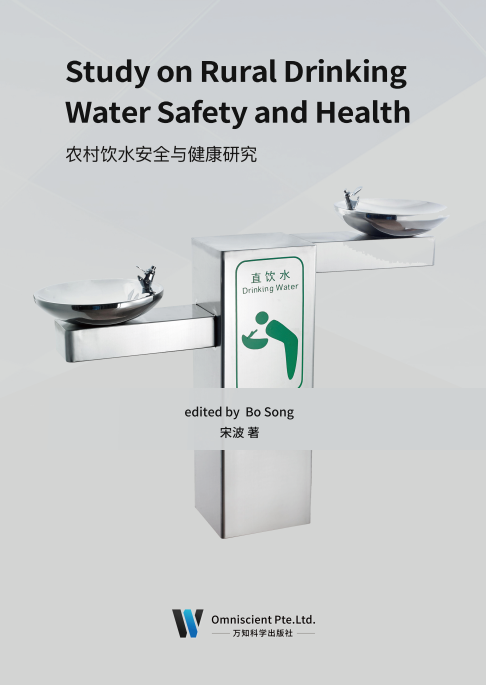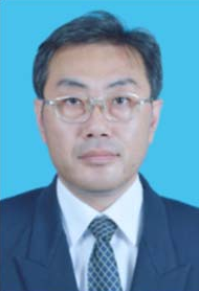
Preface
Since the reform and opening up, with the advancement of industrialization and urbanization, the rapid economic and social development has brought dual effects on rural water resources. On the one hand, traditional industrial and agricultural production methods as well as urban and rural lifestyles cause serious pollution to rural water resources. On the other hand, the economic development and the improvement of people's living standards have put forward higher requirements on the quantity and quality of water resources and the safety and quality of agricultural products. In recent years, such conflict has become increasingly prominent, and has become an urgent problem for governments at all levels and a hot spot of social concern. To solve this problem, we are not only dealing with three agricultural problems, but also dealing with the major livelihood issues related to the health and safety of people's drinking water and food, and an important issue related to the construction of a harmonious society.
According to the statistics from the World Health Organization (WHO), 80% of global diseases are related to direct drinking of unclean drinking water; as of the end of 2004, 1.1 billion people worldwide still lack access to safe drinking water and 2.6 billion lack basic sanitation. From the year of 2000, the European Union has issued multiple comprehensive reports on drinking water quality through sampling and analysis of drinking water sources in its member states, summarizing the improvement of drinking water quality in Europe. The United States Congress passed the Safe Drinking Water Act in 1974 and revised it twice in 1986 and 1996, authorizing the United States Environmental Protection Agency to establish national drinking water standards to ensure human health, and prevent natural and man-made pollution in drinking water. At the same time, the US Environmental Protection Agency, each state, and water supply systems are required to cooperate and work together to ensure that drinking water meets national standards. Our country also attaches great importance to drinking water safety. During the “Tenth Five-Year Plan” period, we have formulated and implemented plans like “Relieve Rural Drinking Water Difficulties” and “Rural Drinking Water Safety Emergency Plan”, which solved the drinking water problem for more than 56 million rural residents and rural drinking water safety problem for more than 11 million residents. This is really a big achievement.
前 言
改革开放以来,随着工业化、城镇化的推进,经济和社会的快速发展对农村水资源产生了双重的影响:一方面是传统的工农业生产方式和城乡生活方式,对农村水资源产生严重的污染, 另一方面是经济发展和人民生活水平提高对水资源的数量、质量和农产品安全品质都提出了更高的要求。近几年来,这一矛盾日益突出,并已成为各级政府迫切需要解决的难题和社会关注的热点。破解这一难题,不仅是解决三农问题的需要,而且是关系到人们的饮水、食品等健康和安全的重大民生问题,是关系到和谐社会建设的重要问题。
据世界卫生组织(WHO)统计,全球 80%的疾病与直接饮用不清洁饮用水有关;截至 2004 年底,全球范围内仍有 11 亿人口得不到安全饮水, 26 亿人缺乏基本的卫生条件。从 2000 年开始,欧盟通过对其各成员国饮用水水源地进行取样分析,发布了多期饮水水质综合报告,综述了欧洲饮水水质改善的水平。美国国会 1974年通过了安全饮用水法,并于 1986 年和 1996 年先后两次进行修订,授权美国环保署建立基于保证人体健康的国家饮用水标准,以防止饮用水中自然和人为的污染,同时要求美国环保署、各州和供水系统互相协作、共同努力,以确保饮用水符合国家标准。 我国对饮水安全也高度重视, “十五” 期间制定并实施了“农村饮水解困” 、“农村饮水安全应急规划”等计划,解决了 5600 多万农村人口的饮水问题及 1100多万人的农村饮水安全问题,取得了较大的成效。

Bo Song, male, the Han nationality, born in Linyi City, Shandong Province in December 1968, graduated from Shandong Agricultural University with a bachelor's degree, senior engineer. He has been mainly engaged in German food aid projects, river governance, follow-up support for large and medium-sized reservoirs resettlement, water conservancy surveys, rural drinking water safety, continued construction of large and medium-sized irrigation areas, water-saving renovation, and agricultural water price reforms. He is the current deputy director of Linyi Water Conservancy Engineering Guarantee Center. He was awarded the second-class merit and the third-class merit by the Linyi Municipal Government, awarded twice by the Linyi Human Resources and Social Security Bureau and the Water Conservancy Bureau as the city's advanced individual in water conservancy work, and won the May 1st Labor Medal of Shandong Agriculture, Forestry and Water System.
宋波,男,汉族, 1968 年 12 月生,山东临沂人,毕业于山东农业大学,本科学历。高级工程师,先后主要从事过德国粮援项目、河道治理、大中型水库移民后期扶持、水利普查、农村饮水安全、大中型灌区续建配套与节水改造、农业水价改革等工作。现任临沂市水利工程保障中心副主任。 分别被临沂市政府记二等功、 三等功各一次,被临沂市人社局、水利局授予全市水利工作先进个人两次、山东省农林水系统五一劳动奖章等荣誉称号。